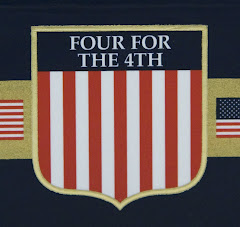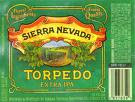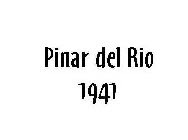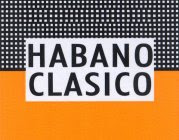UNITED STATES PATENT AND TRADEMARK OFFICE
SERIAL NO: 77/157193
MARK: HABANOS
*77157193*
CORRESPONDENT ADDRESS:
DAVID B. GOLDSTEIN
RABINOWITZ, BOUDIN, STANDARD, KRINSKY &
111 BROADWAY FL 11
NEW YORK, NY 10006-1901
RESPOND TO THIS ACTION:
http://www.uspto.gov/teas/eTEASpageD.htm
GENERAL TRADEMARK INFORMATION:
http://www.uspto.gov/main/trademarks.htm
APPLICANT: Empresa Cubana del Tabaco a/k/a Cubataba ETC.
CORRESPONDENT’S REFERENCE/DOCKET NO:
N/A
CORRESPONDENT E-MAIL ADDRESS:
dgoldstein@rbskl.com
OFFICE ACTION
TO AVOID ABANDONMENT, THE OFFICE MUST RECEIVE A PROPER RESPONSE TO THIS OFFICE ACTION WITHIN 6 MONTHS OF THE ISSUE/MAILING DATE.
ISSUE/MAILING DATE: 8/21/2008
This Office action is in response to applicant’s communication filed on August 10, 2008.
Applicant seeks to register the designation “Habanos” as a certification mark used to indicate the geographical origin of cigars. The word “habano” (the plural being “habanos”) is translated as “Havanan, Havana, of Havana.” See: Larousse, Gran Diccionario English-Spanish Spanish-English Dictionary, XVII & 362 (1944) and The American Heritage Spanish Dictionary, 277 (2nd ed, 2001)(copies enclosed). “Habanos” also means “something from Havana”. See: Reference.com (on-line encyclopedia)(copy enclosed). Further, “Habano” is defined as a Havana cigar or Cuban cigar. See: the above definitions as well as the on-line guide by CigarAdvisor (copy enclosed).
Certification Statement
A certification mark for a geographical location is used to certify that certain goods originate in the particular geographical region identified by the mark. Community of Roquefort v. William Faehndrich, Inc., 133 USPQ 633 (2nd Cir, 1962), and TMEP § 1306.02. In the present situation the designation “Habanos” indicates that cigars branded with applicant’s designation have their origin in the Province or City of Havana, Cuba, for Havana refers to both a Cuban province and city located therein. See: The Columbia Gazetteer of the World Online (2005)(copy enclosed). The certification statement, however, is defective because it indicates that the certification mark indicates that cigars identified with applicant’s designation have their geographical origin in Cuba and are made from Cuban grown tobacco. Correspondingly, the certification statement must be amended to indicate the geographical location from which the goods originate, and that is Havana.
Geographical Misdescription
Applicant bases this service mark application, in part, upon a Cuban trademark registration that indicates the designation “Habanos” identifies cigars grown in the country of Cuba using tobacco produced in Cuba. However, the mark for which registration is sought is “Habanos”, a geographical region in Cuba that does not identify the entire country. Because the mark sought to be registered indicates that cigars originate in a particular geographical region (that is, the Province of Havana), and the Cuban trademark registration upon which the application is based, in part, indicates that the designation “Habanos” identifies cigars grown in all parts of Cuba, the mark geographically misdescribes the goods. Correspondingly, the following is instituted:
Registration is refused because the applied-for mark consists of or includes geographically deceptive and primarily geographically deceptively misdescriptive matter in relation to the identified goods and/or services. Trademark Act Sections 2(a) and 2(e)(3), 15 U.S.C. §1052(a), (e)(3); see In re Les Halles De Paris J.V., 334 F.3d 1371, 67 USPQ2d 1539 (Fed. Cir. 2003); In re Cal. Innovations Inc., 329 F.3d 1334, 66 USPQ2d 1853 (Fed. Cir. 2003), In re Budge Mfg. Co., 857 F.2d 773, 8 USPQ2d 1259 (Fed. Cir. 1988); TMEP §§1210, 1210.01(b)-(c).
A mark is geographically deceptive and primarily geographically deceptively misdescriptive if the following is shown:
(1) The primary significance of the mark is a generally known geographic place or location;
(2) The goods for which applicant seeks registration do not originate in the geographic place identified in the mark;
(3) Purchasers would be likely to make a goods-place association; that is, purchasers would be likely to believe that the goods originate in the geographic place identified in the mark; and
(4) The misrepresentation regarding the geographic origin of the goods is material to the purchaser’s decision to buy the goods or use the services in question.
In re Les Halles De Paris J.V., 334 F.3d 1371, 1373, 67 USPQ2d 1539, 1541 (Fed. Cir. 2003); In re Cal. Innovations Inc., 329 F.3d 1334, 1341, 66 USPQ2d 1853, 1859 (Fed. Cir. 2003); TMEP §1210.01(b)-(c).
Descriptiveness
Applicant seeks to register the designation “Habanos” for a certification mark for cigars. As was noted above, the word “Habanos” is variously defined. It is defined as “Havanan” or “of Havana” or “something from Havana”. “Habanos” is also defined as a Havana cigar or a cigar, in general. Further, applicant’s service mark registration, upon which this application is based, indicates that the cigars certified are produced over the entire country of Cuba using Cuban cigar tobacco. This evidence shows that the cigars covered by the service mark application are not exclusively produced in the Province of Havana and the designation “Habanos” is used as the generic name for cigars. Correspondingly, “Habanos” primarily signifies a type of cigar made either in Cuba or outside Cuba, without regard to the regional origin identified by the name, rather than a mark of certification. Since “Habanos” is a descriptive name of a particular type of cigar and does not identify a geographical location from which particular cigars originate, the refusal to register because “Habanos” does not act as a certification mark is maintained. Trademark Act § 2(e)(1). See: In re Cooperativa Produttori Latte E Fontina Valle D’Acosta, 230 USPQ 131 (TTAB, 1986), and Tea Board of India v. Republic of Tea Inc., 80 USPQ2d 1881 (TTAB, 2006).
Cuban Registration
Applicant submitted August 10, 2008, a certification signed by the General Director of the Cuban Office of Industrial Property indicating that as of January 27, 2003, the owner of the Cuban service mark registration upon which this application is based had relocated and that the registration was in full effect at that time. It is noted that the term of a Cuban trademark registration, which is ten years, commences on the filing date of the application, once the underlying mark is registered, and may be renewed for successive 10 year periods. See: Trademarks Throughout The World, § 39.20 (2008)(copy enclosed). Applicant’s service mark in Cuba was registered December 4, 1967. Correspondingly, with the proper renewals, the registration would have expired December 4, 2007. Although the General Director’s statement that the registration was in effect on January 27, 2003, was correct, the statement has little bearing upon the renewal of the registration.
It appears that the foreign registration on which this application is based, in part, expired on December 4, 2007. The foreign registration must be in force at the time the United States issues a registration based on that foreign registration. In re Societe D’Exploitation de la Marque Le Fouquet’s, 67 USPQ2d 1784 (TTAB 2003).
Therefore, applicant must submit a certificate of renewal or other certification from the intellectual property office of the foreign country, or a copy of the foreign registration that shows that the foreign registration has been renewed and will be in force at the time the registration issues in the United States. 37 C.F.R. §2.34(a)(3)(iii); TMEP §1004.01(a).
/David C. Reihner/, Examining Attorney
Law Office 111, 571-272-9392
571-273-9111 fax.





















































